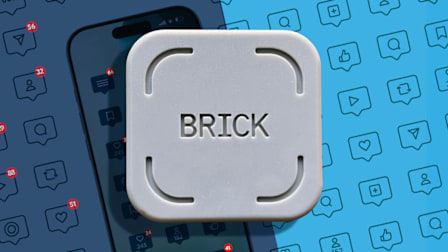How to Clear Up Brain Fog
Mental cloudiness may arise with long COVID, but it can also be caused by meds, depression, trouble sleeping, and more

Brain fog, characterized by difficulty focusing, sluggish thinking, and memory lapses, is a common symptom of long COVID—the complex condition that sometimes emerges after a case of COVID-19. But brain fog isn’t unique to long COVID. Chronic insomnia and other consistent sleep troubles, as well as head injury, stroke, depression, cancer therapies, and drug side effects, can lead to a similar, often troubling mental cloudiness.
There’s no perfect treatment for brain fog, but doctors may be able to treat some of the conditions that can cause it, says Zaldy Tan, MD, director of the Bernard and Maxine Platzer Lynn Family Memory and Healthy Aging Program at Cedars-Sinai Medical Center in Los Angeles. It’s unlikely you’ll be able to clear up brain fog instantly. But here’s what we know about it, and what experts say you should do if you are experiencing brain fog.
Understanding Brain Fog
People who report brain fog describe it as “the sense they can’t do cognitively what they could before . . . they don’t feel as mentally sharp,” says Steven Flanagan, MD, chair of rehabilitation medicine at the New York University Grossman School of Medicine. People may report problems multitasking, articulating words, or finding things around the house, Tan says.
What You Can Do to Clear Up Brain Fog
Diaz-Arrastia says that potential solutions will depend on the exact nature of someone’s brain fog and how it’s affecting their daily life. So your initial step should be consulting a physician and explaining your symptoms. Your provider may refer you to a neuropsychologist for a formal cognitive assessment. That might lead to therapy to identify cognitive strengths that can compensate for impairment. Here are some other strategies that doctors might suggest to help ease brain fog.
Limit meds and alcohol. Tan says one of the first things to do is cut back on alcohol and try to eliminate unnecessary medications, especially any drugs known to leave people feeling foggy. Those can include tranquilizers, as well as pills used to treat insomnia. But ask your doctor before stopping meds.
Improve sleep. An episode of jet lag can cause short-lived brain fog, but people with chronic sleep problems can experience this consistently. Practicing good sleep hygiene may help, Flanagan says. That means having a consistent bedtime; sleeping in a cool, dark room; and avoiding screens for an hour before bed. “Sufficient and particularly regular sleep is important . . . to maintain healthy brain functioning,” Diaz-Arrastia says.
Exercise. For those who are able to do aerobic exercise, there’s good evidence that it may help clear mental fogginess. Someone with severe brain fog should work with a physical therapist, however. Trying to exercise solo can be risky in this case, Diaz-Arrastia says. Getting the correct dosage of exercise is important, and too much can exacerbate long COVID symptoms.
Reduce your cognitive load. Take steps to put less stress on your memory, Tan says. Consider relying on lists instead of your memory, for example, and try to avoid multitasking until you feel better.
Address mental health. People who have depression can develop brain fog that affects memory and lasts for months or years, Tan says. Therapy or antidepressants may help ease brain fog, as well as other symptoms.
Editor’s Note: This article also appeared in the August 2022 issue of Consumer Reports On Health.




